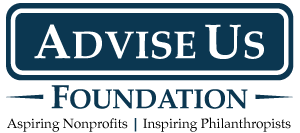Recurring gifts are nothing new. Numerous nonprofit organizations have shown big results with recurring gift donors. One study of online contributions found recurring gift donors gave 42 percent more annually than one-time contributors.
But there is a problem – and an opportunity.
One of the biggest areas of donation growth is donor-advised funds. But donor-advised fund advisors – the people you will need to solicit for a donation – cannot make a legally binding pledge using their fund. The advisors can only make “grant advisements.”
This is an important legal restriction. But here’s a secret. Most donor-advised fund administrators fulfill almost all advisor grant advisements. That is, charities get the grant. Likely less than one percent of advisements get rejected. The few grant advisements going unfilled are almost always because:
- The donor requests a grant going to a nonprofit that isn’t a 501(c)3 charity;
- The donor is receiving something of value for the donation; or, in rare cases,
- The administrator has restrictions on what 501(c)3 charities can be supported (something donors would be made aware of when they create the fund).
If you’re a 501(c)3 charity in good standing with the IRS and do not give anything of value in return for the donation, you should almost always get the grant.
Where is the opportunity? Most donor-advised funds offer grant advisement pre-scheduling of recurring donations. This is a growing area with increasing numbers of scheduled contributions. It’s a big opportunity for you!
Successfully Solicit Donor-Advised Fund Recurring Grants
As you design your donor-advised fund recurring grant campaign there are three considerations (among standard ones) to keep top of mind.
- Segment Your List for Donor-Advised Fund Advisor Appeals If you don’t already track donor-advised fund giving, you should. Donor-advised fund grants totaled $9.66 billion to charities in 2013 – better than half that year’s corporate giving total according to Giving USA. Tracking donor-advised funds allows you to better understand the capacity of your donors for targeted appeals (not just “recurring grant” asks). True some donor-advised fund advisors give “anonymously” (i.e. you will only have the name of the fund administrator and/or the fund itself). But anonymous grants are often less than 10% of donations. Make sure that your list has the name(s) and contact information of the fund advisors (“Jane and John Doe”), not just the administrators (Fidelity, Schwab, etc.). You need to appeal to the advisors for grants. Appealing to administrators unsolicited is a waste of time.
- Use Donor-Advised Fund Language “Scheduled/Recurring Grants” The best call to action is in the language used by donor-advised funds that is familiar to the donor advisor and their grant request experience. Many fundraisers use “recurring gift” to describe scheduled donations to charity. But when it comes to donor-advised funds, lose that language. The largest donor-advised funds use the term “gift” to describe the donor’s contribution to their fund. Almost all describe what’s given to charities like yours as “grants.”
The largest seven donor-advised funds (by assets) account for the bulk of grants. Almost all of them use a variation of “recurring grant” to describe the process. Some of the largest, including the largest (Fidelity Charitable), also use “scheduled grant” as in “issue this grant on a scheduled/recurring basis.” Use language in your request that hits the keywords: scheduled, recurring, and grant. For example, “please consider making a scheduled/recurring grant from your donor-advised fund.” - Use the Timing of Donor-Advised Fund Schedule Options In addition to using “correct” language, you may want to adjust your scheduling recommendations. Fidelity Charitable offers monthly, quarterly, semi-annual, and annual grant scheduling and other donor-advised funds may have other restrictions. Stripping your scheduling request down to the basics – no more than monthly, quarterly and annually – may make scheduling requests “seamless” for the advisor prospect.
Scheduling Donor-Advised Fund Grants is Easy – Make the Ask!
Scheduling donations with a donor-advised fund is easy – and a huge opportunity! Connect with your donors who have donor-advised funds and ask them to make one scheduled advisement. That’s it. Your targeted ask in donor-advised fund “friendly” language can turn small dollar donors into mid-level donors, or small dollar and mid-level donors into major donors! That’s more money – coming regularly – for your charity’s mission. Make the ask and start getting scheduled/recurring grants today!
____________
Rosalyn Lambert serves as Charitable Catalyst, Donor Services, at The Advise Us Fund. She first experienced philanthropy as a 5th grade volunteer at the Red Cross, and later would work as General Manger, Financial Development at the Red Cross. An independent fundraising consultant, Roz has worked as a Senior Development Officer in Pediatrics at the University of Chicago; Manager of Major Gifts, Lutheran General Hospital, at the Advocate Charitable Foundation; and worked as Assistant Director of Corporate Relations at the Chicago Zoological Society. Roz holds a B.A. in Philanthropy and Fundraising at Indiana University Bloomington.
The information in this blog post is general and educational. It is not intended nor should it be construed as legal, tax, investing or financial advice. Individuals should consult with their own advisor about charitable giving arrangements The Advise Us Fund® may describe.

